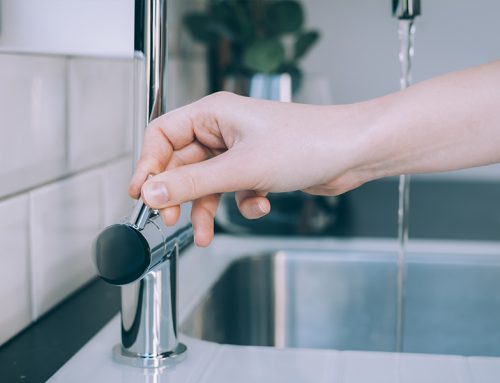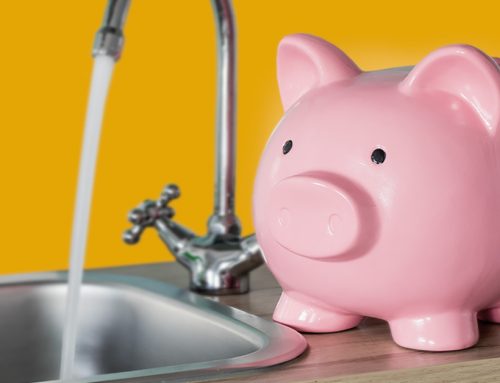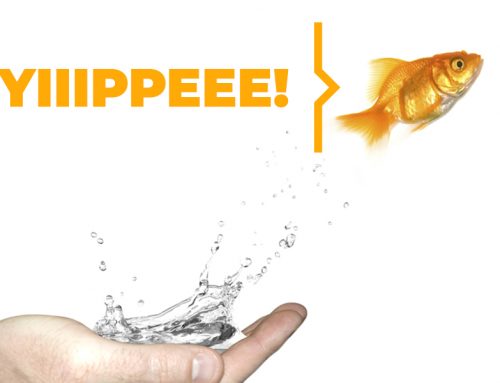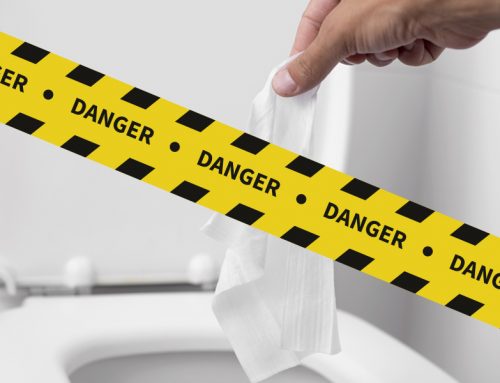One major thaw in winter or a heavy rainfall in the summer can quickly trigger a flood. Your drain may be full to bursting. If it isn’t in top shape, it could just give up the ghost. And that’s when things can really start to stink. Literally! What should you do in the event of a sewer backup? How can you avoid the worst-case scenario? Find out all you need to know below.

Target your enemies (and cut them off at the pass)
Your pipes don’t like them, and things are bound to get worse over time. The following are the top enemies to keep away from your pipes:
1 ▶︎ TREE BRANCHES. With their long arms and wandering hands, they won’t hesitate to block or damage your pipes as soon as your back is turned.
2 ▶︎ NON-BIODEGRADABLE ITEMS. Avoid flushing feminine hygiene products, baby wipes, paper towels or diapers(!). Remember: just because something disappears down the toilet doesn’t mean everything’s magically squared away.
3 ▶︎ COOKING OILS AND FATS. These are two inveterate troublemakers. You may see them sliding gracefully down the drain, but they have a long way to go and harden at the first signs of cold.
Recognize the warning signs
If your pipes are talking to you, it’s best to learn their language.
- Is water backing up from your drains?
- Are your drains gurgling?
- Does your sink or bathtub take a long time to drain?
- Is your basement drain overwhelmed if you start the dishwasher or a load of laundry?
There’s are all signs that your sewer lines are starting to clog.
6 easy steps to handle worst-case scenarios
Already too late? Declare a state of emergency at the first sign of a sewer backup.
Step 1 ▶︎ Stop all activities that involve water and pipes. Now is not the time to shower or finish your load of whites. Things have gotten serious.
Step 2 ▶︎ Turn the water off. Just remember to usher your oldest child out the shower before you do it. The intact condition of your eardrums may depend on it. What’s the quickest way to do it? Turn off the house’s main water valve, as well as the one above the water heater.
Step 3 ▶︎ Clear the basement drain and keep a close eye on it. Rig the odds in your favour. It may be able to drain away some of the damage.
Step 4 ▶︎ Protect your belongings! Clear the at-risk area and keep all family members away from the new basement swimming pool.
Step 5 ▶︎ Call professionals to the rescue. You’ll need more than a brush and good will to get out of this mess. An experienced plumber has the equipment and know-how to clean your pipes, conduct tests and draw the appropriate conclusions. That’s exactly what you’ll find at Plombier Expert! 😉
Step 6 ▶︎ Contact your insurance company. Euphemistically known as “bacteria backup,” a sewer backup can cause damage to your property. It may be helpful to seek the advice of a claim adjuster. Your insurance company could absorb some of the costs of any ancillary damage.
Psst! Did you know that Plombier Expert offers disaster recovery services? Learn more about our turnkey services!
Plombier Expert: Emergency resolved
Because we know that an emergency situation is always challenging, our experts are at your disposal 24 hours a day, 7 days a week.









